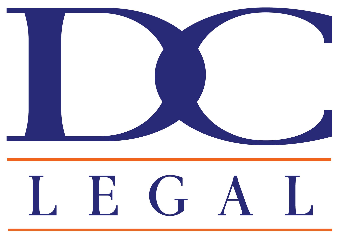Part I: Tips for Licensed Professionals Operating Business Entities
Introduction
Licensed professionals, such as attorneys and physicians, will often operate their business through a business entity, rather than simply operating as a sole proprietorship. Operating as a business entity can produce several benefits for the professional business owner, such as asset protection, limited liability, and potential tax savings. Washington law, however, limits the types of business entities that licensed professionals may use to practice their profession.
If a licensed professional incorrectly forms and operates under the incorrect business entity, they expose themselves to potentially severe legal consequences, such as the possibility that a court will refuse to recognize contracts or agreements. Luckily, the process of converting from a traditional business entity to an appropriate business form is often a simple one. One reason why so many professionals remain unaware of these legal restrictions is that the law governing business entities and ‘learned professions’ involves a sometimes confusing web of both common law and statute.
Over the next week, in a four-part blog series, we’ll explore: the development of Washington law governing licensed professionals and business entities; the entities available for use by licensed professionals; the special rules applicable to licensed professionals operating as a business; and the potential consequences of forming the incorrect professional service entity.
Washington Law Restricts Licensed Professionals from Forming Traditional Business Entities
It is an often-overlooked fact that Washington law prohibits a traditional business entity, such as a Limited Liability Company (LLC) or corporation from engaging in what courts have termed a ‘learned profession.’ The Washington Supreme Court has explained that “neither a corporation nor any unlicensed person or entity may engage, through licensed employees, in the practice of the learned professions.” State ex rel. Standard Optical Co. v. Superior Court for Chelan Cty.,17 Wn. 2d 323, 328, 135 P.2d 839, 841 (1943). The court went on to define learned professions as those “which can only be practiced by persons who have received a license to do so after an examination as to their knowledge of the subject.” Id.
The concern regarding the corporate practice of the learned profession stems from the fact that “human personal qualifications for [learned] professions cannot be possessed by a corporation,” and allowing corporations to practice these professions could produce “evil results.” Fletcher, Cyclopedia of Corporations, Vol. 1, § 97, p. 339 (Perm. ed.).
This legal prohibition against the corporate practice of a learned profession is often-overlooked, however, for two main reasons. First, this prohibition is a creature of common law, rather than statute, and much of the relevant law is found in a collection of cases, rather than an easily-searchable collection of statutes. Second, the underlying term ‘learned profession’ has not been exhaustively defined by the courts. For example, the courts often use the examples of law and medicine as learned professions subject to corporate prohibition, but when it comes to the question of whether or not other professions fall within this prohibition, the answer is typically determined on a case-by-case basis. The Attorney General’s Office, for example, was asked in 1960 whether a corporation could engage in the practice of veterinary medicine, to which it responded in the negative. See AGO 1960 No. 147 – Sep 29 1960. The end result is that, in order to determine the full list of professions that fall under this general corporate prohibition, one has to sift through a collection of court cases issued over the past several decades.
The following is a non-exhaustive list of the learned professions to which the general corporate prohibition apply: certified public accountants, chiropractors, dentists, osteopaths, physicians, podiatric physicians and surgeons, chiropodists, architects, veterinarians, and attorneys.
In our next blog, we’ll explore the various entities available for use by licensed professionals.
Have questions with regards to a new or current business entity? Contact one of our Kirkland business law attorneys.







